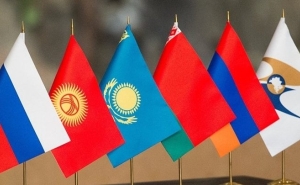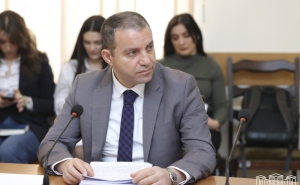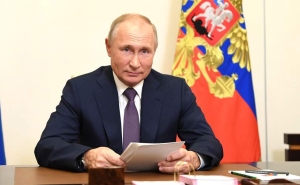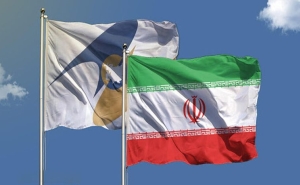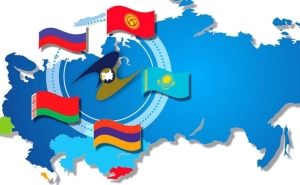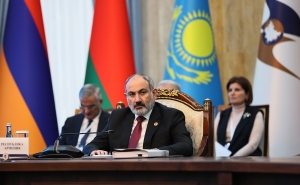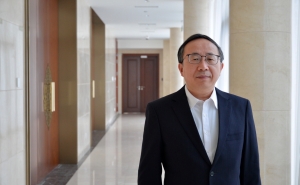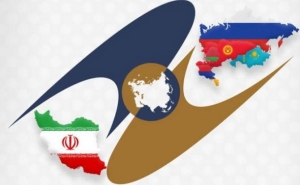 In the Parliamentary Elections of the RA the "And-And" Policy Won
In the Parliamentary Elections of the RA the "And-And" Policy Won
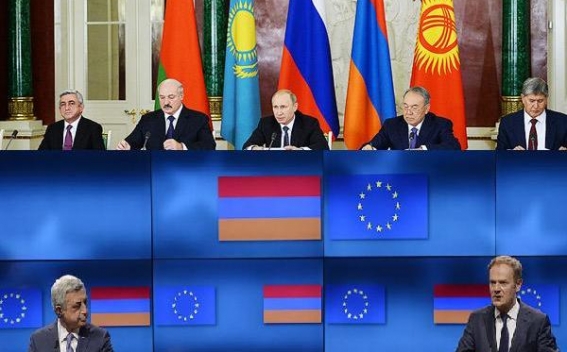
As a result of the Parliamentary elections held on April 2 in Armenia, four political forces will be represented in the newly elected Armenian parliament. If we consider the approaches of these parties and political blocs in relation to integration processes, then we can state that in the parliamentary elections the approach of combining the two integration vectors, or the so-called "and-and" policy has won.
It is clear that the results of the parliamentary elections are not conditioned solely by, first and foremost, the approaches of political forces to a particular foreign policy issue, since a number of objective and subjective factors influence the decision of citizens. However, the future foreign policy of the country is conditioned precisely by the political views of the political parties represented in the Parliament. In Armenia, this now becomes particularly relevant, given that the new parliament will act already in the conditions of the parliamentary system of governance. Hence, it is the political forces that will dictate the foreign policy course of the country.
So, at least three of the four political forces represented in the new parliament, the Republican Party of Armenia, "Tsarukyan Block" and the Armenian Revolutionary Federation (Dashnaktsutyun), attached great importance to the process of European and Eurasian integration in the pre-election period. The most eloquent is the pro-Western bloc, Yelk ("Exit"), which stressed in its election program that considers Armenia's entry into the Eurasian Union to be erroneous, but at the same time the bloc did not demand withdrawal from the Union, unlike the "Free Democrats", who won’t be represented in the new parliament.
The largest number of mandates in the Armenian parliament will have the Republican Party of Armenia and the "Tsarukyan Block", respectively 58 and 31 each. In their electoral programs these two political forces stress the importance of combining the two integration processes, the development of the Armenian-Russian strategic relations and, in parallel, the dialogue with the EU.
In particular, the RPA is still in power, and it was during the rule of this party that Armenia joined the Eurasian Union, at the same time actively working with the European side and reaching the initialing of the new Armenia-EU framework agreement. The party's election program notes the importance of deepening Armenia-Russia strategic relations and raising them to a new level. It is emphasized that "after joining the Eurasian Economic Union, Armenia has broader opportunities for economic development of the country, and in this sense we will support businessmen so that they can fully use the opportunities provided by the Union." At the same time, the party attaches great importance to the development of relations with Europe, both at the Armenia-EU level, and at the bilateral level with individual EU countries. "Cooperation with the European Union is of key importance for the implementation of reforms in our country. We will continue to deepen our cooperation with the EU by completing the process of agreeing a new legal framework for our relations." We will continue to develop relations with France, Germany, Greece, and other European countries, based on the same civilizational value system," the program of the party stressed.
The second major force in the newly elected parliament will be the "Tsarukyan Bloc", formed on the basis of the "Prosperous Armenia" party, which always attached importance to cooperation with both Russia and Europe. And now the program of the opposition bloc emphasizes the need to "deepen and develop Armenian-Russian partnership relations," stressing also the importance of Armenia's participation in the EAEU, the CIS and the CSTO. At the same time it is proposed to "continue constructive participation in the processes of European integration" and attach importance to the signing of a new Armenia-EU framework agreement.
The third force in the parliament will be the Armenian Revolutionary Party (Dashnaktsutyun), which is a traditional Social Democratic party promoting the idea of "Hay Date" (edit.- the struggle for the recognition of the Armenian Genocide). Today the ARP is in a coalition with the RPA and considers Armenia's membership to the EAEU to be a right decision. The pre-election program of the party does not give preference to either of the two integration vectors and notes that "Armenia must conduct an independent foreign policy based solely on national interests and the long-term strategic development of the state." "We are not pro-American, either pro-Russian, or pro-European, we are pro-Armenian and Armenian-centric".
And, finally, the fourth political force represented in parliament is the block "Yelk" ("Exit"), which demonstrates itself as the most pro-Western party. "Yelk" considers Armenia's membership to the Eurasian Union a great mistake, underlining the risks connected with "Armenia's sovereignty, security, economic and political natural development, fair solution of Artsakh problem (edit.- Karabakh conflict)," and attaches importance to managing these risks. At the same time, the bloc proposes to begin negotiations within the CSTO framework to "clarify the allied commitments to ensure each other's security by the member countries." The bloc also attaches importance to the formation of a deeper and more ambitious field for relations with the EU.
Summing up, it can be noted that two of the four political forces represented in the parliament clearly emphasize the importance of developing cooperation with both the Eurasian Union and the European Union. One of the other two forces also supports the "and-and" policy, since at the moment it is the best one in terms of the interests of Armenia. And the block "Yelk", most probably, will adhere to the critical position in relation to the processes of Eurasian integration, pointing out the shortcomings in these relations and demanding to take steps to overcome them, which, in turn, can contribute to the improvement of the process.
Thus, it can be expected that the policy of "and-and" adopted by Armenia in the issue of integration processes will not change, and Armenia will consistently continue the steps to develop Armenia-Russia bilateral relations, increase the effectiveness of Armenia's participation in the EAEU and CSTO, and at the same time develop the Armenia-EU relations on the basis of a new framework agreement, which will be signed in the near future.
Other materials on this subject
- EU Fully Supports Normalization Process of Armenia-Turkey Relations - Toivo Klaar "Normalization of relations and opening of communications is an important objective that the European Union fully supports", he said on Twitte
- The EU Wants To Be Engaged In South Caucasus The EU wants to be a very committed, active, and engaged partner for Armenia's stability, prosperity, and security. In this context, we had the opportunity to talk about Armenia-EU relations
- The 6th Meeting of the Armenia-EU Joint Visa Facilitation Committee Took Place The importance of the continuous mutual efforts aimed at promoting the mobility of citizens, fighting illegal migration and opening in due course the Visa Liberalization Dialogue has been underlined.
- Export From Armenia To The EU In 2019 Was 196.6 Million EUR Armenia has the highest percentage of the use of the preference among all the EU GSP+ beneficiaries in 2019, EU delegation in Armenia informs.
- Austria Completes Internal Procedures Necessary for Ratification of Armenia-EU CEPA Austria notified on July 22 the General Secretariat of the European Council and the Council of the EU about the completion of its internal procedures necessary for the ratification of the Armenia-EU Comprehensive...
Other materials on this subject
- EAEU to become one of key centers of Greater Eurasian Partnership, says Putin "Our integration may play the role of one of the key centers of the Greater Eurasian Partnership formation," the president added.
- Russia ratifies protocol on requirements for length of service of EEU bodies' employees for pensions The corresponding law was signed by Russian President Vladimir Putin. The document was published on the official Internet portal of legal information.
- We have reached significant achievements in the development process of the EAEU- Nikol Pashinyan A large single market has been created, the mutual trade figures have increased considerably.
- Russia ratifies agreement on simplification of payments for goods’ transit within EAEU territory The aforesaid agreement will be applied in the event that the goods are subject to the procedure of customs transit in one EEU member country, whereas customs and other payments in another.
- EAEU Countries Discuss Creating Eurasian Agency for Strategic Initiatives The issue has been discussed by the economy ministers of the Union’s member states and has been presented to the Eurasian Economic Commission in the platforms of the Eurasian Inter-governmental Council.
Other materials on this subject
- RA President: Armenia Has No Longer Individual-Centered Government Our people witnessed the advantage of it, after the election, when for the first time in the history people did not gather and say they would make a revolution.
- The New Parliament Will Carry Out Multi-Vector and Balanced Foreign Policy In regard with Karabakh conflict, the new Parliament will have a joint approach – to resolve the conflict through peaceful negotiations. Nevertheless, in the approaches of the 4 political forces there...
- Post-Election Armenia: Changes Are Recorded in the Political Culture These elections were obsereved by an unprecedented number of observers, including both international observers and local ones, as well as our compatriots from Diaspora. This means that more representatives...
- Only 1.65% of the Armenian Voters Expressed Themselves in Favor of Great Concessions on Karabakh Issue It should be mentioned that the least votes received the approach adopted by "Congress-PPA" party, which supposed great concessions. Instead, the voters supported the settlement of the conflict with negotiations...
- What Relations with the Diaspora Did the RA Citizens Choose? Armenian Revolutionary Federation, which received 103,48 votes, thinks that the Armenian Diaspora should be fully integrated in the development of Armenian statehood.
-
 17:08
17:08The regular session of the Anti-corruption Policy Council takes place in Jermuk
-
 15:05
15:05The Prime Minister sends congratulatory messages to the supreme leader of Iran and the President of Iran
-
 11:11
11:11Armenia sends earthquake aid to Turkey
-
 10:43
10:43Commemoration of the Pontiff St. Sahak Partev
-
 09:16
09:16Some roads are closed and difficult to pass in Armenia
-
 19:55
19:55Phone conversation of the Foreign Minister of Armenia with the U.S. Assistant Secretary of State for European and Eurasian Affairs
-
 18:30
18:30Prime Minister Pashinyan and President Khachaturyan meet
-
 18:20
18:20Ararat Mirzoyan with Co-Chairman of the OSCE Minsk Group of France Brice Roquefeuil
-
 17:01
17:01Humans could land on Mars within 10 years, Musk predicts
-
 16:45
16:45France, US urge 'immediate' end to Nagorno Karabakh blockade
-
 16:01
16:01Blockaded Nagorno Karabakh launches fundraiser to support quake-hit Syria
-
 15:59
15:59Earthquake death toll in Turkey rises to 18,342
-
 15:43
15:43Ararat Mirzoyan Held a Telephone Conversation with Sergey Lavrov
-
 15:06
15:06French president rules out fighter jet supplies to Ukraine in near future
-
 14:47
14:475 Day Weather Forecast in Armenia
-
 14:44
14:44President Vahagn Khachaturyan wrote a note in the book of condolences opened in the Embassy of Syria in Armenia
-
 14:20
14:20Azerbaijan’s provocations impede establishment of peace and stability – Armenian FM tells Russian Co-Chair of OSCE MG
-
 12:57
12:57France representation to OSCE: Paris calls on Azerbaijan to restore freedom of movement through Lachin corridor
-
 11:40
11:40Command of Kosovo forces highly appreciated preparation of Armenian peacekeepers
-
 10:16
10:16The United States withdrew from sanctions against Syria for six months the provision of assistance after the earthquake
day
week
month
Humidity: %
Wind: km/h


